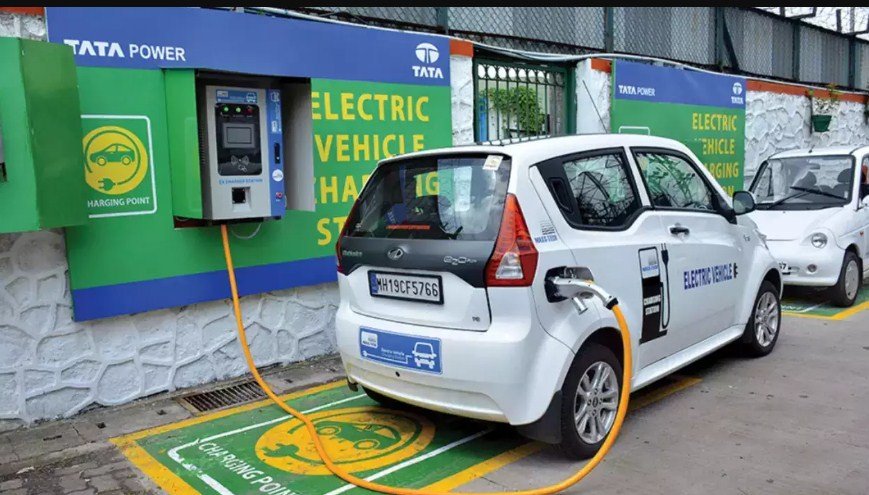A Green Initiative By Sun Mobility
Sun Mobility, a leading provider of energy infrastructure and services for electric vehicles (EVs), has launched India’s first solar-powered EV charging station in Bengaluru. The charging station, located at the Indian Oil Corporation’s fuel station on Hosur Road, is powered by a 7.5 kWp solar rooftop system that can generate up to 30 kWh of electricity per day.
The charging station is equipped with Sun Mobility’s proprietary smart batteries and quick interchange stations that can swap the batteries of EVs in less than three minutes. The batteries are compatible with various types of EVs, such as two-wheelers, three-wheelers, and cars. The batteries are also connected to a cloud-based platform that enables real-time monitoring, remote diagnostics, and predictive maintenance.
The solar-powered EV charging station is part of Sun Mobility’s vision to create a network of renewable energy-powered mobility solutions across India. The company aims to reduce the dependence on fossil fuels, lower the cost of ownership, and increase the convenience of EV users. Sun Mobility has partnered with Indian Oil Corporation to set up more than 100 EV charging stations in 20 cities by the end of 2023.
A Boost For The EV Sector In India
The launch of the solar-powered EV charging station is a significant milestone for the EV sector in India, which is expected to grow at a compound annual growth rate (CAGR) of 36% from 2020 to 2026. The government has announced various incentives and policies to promote the adoption of EVs, such as the Faster Adoption and Manufacturing of Hybrid and Electric Vehicles (FAME) scheme, the National Electric Mobility Mission Plan (NEMMP), and the Goods and Services Tax (GST) reduction.
However, some of the major challenges faced by the EV sector in India are the lack of adequate charging infrastructure, high upfront cost of batteries, and limited range of vehicles. The solar-powered EV charging station by Sun Mobility addresses these challenges by providing a clean, affordable, and convenient option for EV users. The station also reduces the grid dependency and carbon footprint of the EV sector.
A Positive Impact On The Environment And Society
The solar-powered EV charging station by Sun Mobility has a positive impact on the environment and society by reducing greenhouse gas emissions, air pollution, and noise pollution. According to a study by NITI Aayog and Rocky Mountain Institute, India can save up to 64% of energy demand and 37% of carbon emissions by 2030 if it adopts a shared, electric, and connected mobility future.
The station also supports the government’s target of achieving 175 GW of renewable energy capacity by 2022 and 450 GW by 2030. The station also creates employment opportunities for local people who can operate and maintain the facility. Moreover, the station enhances the accessibility and affordability of EVs for low-income groups who can benefit from lower fuel costs and improved mobility.

